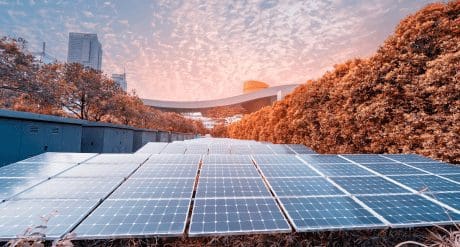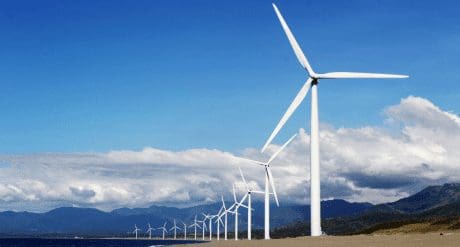
ESG Glossary

Authored by Joanne O’Donnell, Global Regulatory Compliance Team Manager, Joyce Costello, Senior Regulatory Compliance Specialist, Louise Forest, Head of Knowledge Partners and Kayleigh Duane, Researcher.
Stay Up To Date on Industry Terminology
ESG, Environmental, Social and Governance, brings with it a bewildering array of acronyms and terminology. As social and environmental pressure is mounting on companies with a growing amount of demands and expectations put on them by an increasing amount of stakeholders , companies must get up to speed with the ESG lexicon. To help you navigate this complex landscape, we have put together an ESG Glossary of industry terms that every organization should know.
Download a PDF version here.
A:Assurance
Also referred to as auditing, this is a means of certification by an accredited independent auditor or certifier confirming that reported sustainability information has been prepared in accordance with the applicable legal requirements, including mandatory sustainability reporting standards.
Source: EU Corporate Sustainability Reporting Directive (CSRD)
https://eur-lex.europa.eu/legal-content/EN/TXT/PDF/?uri=CELEX:32022L2464&from=EN
B:Bribery & Corruption
Abuse of entrusted power for private gain and can take many forms including conflicts of interest, undue influence and the giving and taking of bribes.
Source: Irish Department of Justice website
https://www.anticorruption.ie/about-us
C:Climate Disclosure
Process whereby companies disclose information about climate-related risks that are reasonably likely to have a material impact on their business, operations, or financial conditions.
Source: Recommendations of the Task Force on Climate-related Financial Disclosures, Report, June 2017
https://assets.bbhub.io/company/sites/60/2021/10/FINAL-2017-TCFD-Report.pdf
D:Due Diligence
A duty to identify, end, prevent, mitigate and account for negative human rights and environmental impacts in a company’s own operations, subsidiaries and value chains.
Source: Factsheet Just and Sustainable Economy
https://ec.europa.eu/commission/presscorner/detail/en/fs_22_1147
E:European Financial Reporting Advisory Group (EFRAG)
Is a body tasked by the EU Commission with developing the first set of European Sustainability Reporting Standards (ESRS) under the Corporate Sustainability Reporting Directive (CSRD).
Source: EFRAG website
F:Forced Labour
All work or service which is exacted from any person under the menace of any penalty and for which the said person has not offered himself voluntarily.
Source: Forced Labour Convention 1930, Article 2
https://www.ilo.org/dyn/normlex/en/f?p=NORMLEXPUB:12100:0::NO::P12100_ILO_CODE:C029
G:Greenwashing
Is the practice of promoting a product, service, or company as more environmentally friendly than it truly is.
Source: EU Regulation 2020/852 on the establishment of a framework to facilitate sustainable investment
https://eur-lex.europa.eu/legal-content/EN/TXT/?uri=CELEX%3A32020R0852&qid=1668094023207
H:Heightened Due Dilligence
Refers to enhanced human rights due diligence measures which businesses should take to prevent human rights abuses in occupied, conflict-affected or high violence areas.
Source: UNDP Heightened Human Rights Due Diligence for Business in Conflict-Affected Contexts: A Guide
I:International Sustainability Standards Board (ISSB)
The standard-setting board established by the IFRS Foundation Trustees in November 2021 to develop a set of global sustainability-related disclosure standards to provide investors with information on companies’ sustainability-related risks.
Source: IFRS Foundation website
https://www.ifrs.org/groups/international-sustainability-standards-board/
L:Lieferkettensorgfaltspflichtengesetz
Also known as the German Corporate Due Diligence in Supply Chains Act, it aims to improve the international human rights situation in supply chains of companies based in Germany.
Source: German Corporate Due Diligence in Supply Chains Act
https://www.bgbl.de/xaver/bgbl/start.xav?startbk=Bundesanzeiger_BGBl&jumpTo=bgbl121s2959.pdf#__bgbl__%2F%2F*%5B%40attr_id%3D%27bgbl121s2959.pdf%27%5D__1668010421980
M:Materiality
A term given to the reporting of how sustainable factors and climate change affect the financial value of a company. Double Materiality refers to a requirement for companies to report both on how sustainability issues affect their performance, position and development (the ‘outside-in’ perspective), and on their impact on people and the environment (the ‘inside-out’ perspective).
Source: EU Corporate Sustainability Reporting Directive (CSRD)
https://eur-lex.europa.eu/legal-content/EN/TXT/PDF/?uri=CELEX:32022L2464&from=EN
N:Non-Financial Reporting
Disclosure by companies of certain types of non-financial information, for example, environmental matters, social matters and treatment of employees, respect for human rights, anti-corruption and bribery, and diversity on company boards.
Source: EU: Non-Financial Reporting Directive 2014/95/EU
http://eur-lex.europa.eu/legal-content/EN/TXT/PDF/?uri=CELEX:32014L0095&from=EN
O:OECD Guidelines for Multinational Enterprises on Responsible Business Conduct
Government-backed recommendations on responsible business conduct for multinational enterprises operating in or from adhering countries.
Source: OECD Guidelines for Multinational Enterprises
http://mneguidelines.oecd.org/MNEguidelines_RBCmatters.pdf
P:Paris Agreement
A legally binding international treaty on climate change, adopted under the United Nations Framework Convention on Climate Change (UNFCCC), the goal of which is to limit global warming to well below 2, and preferably to 1.5 degrees Celsius, compared to pre-industrial levels.
Source: Paris Agreement
https://unfccc.int/sites/default/files/english_paris_agreement.pdf
R:Renewable Energy
Energy derived from non-fossil sources that are replenishable at a higher rate than they are consumed eg. wind, solar (solar thermal and solar photovoltaic) and geothermal energy, ambient energy, tide, wave and other ocean energy, hydropower, biomass, landfill gas, sewage treatment plant gas, and biogas.
Source: Promotion of the Use of Energy from Renewable Sources, Directive (EU) 2018/2001
https://eur-lex.europa.eu/legal-content/EN/TXT/?uri=CELEX%3A32018L2001&qid=1668012480216
S:Sustainability Reporting
A term given to the information necessary to understand an undertaking’s impact on sustainability matters, and information necessary to understand how sustainability matters affect an undertaking’s development, performance and position.
Source: EU Corporate Sustainability Reporting Directive (CSRD)
https://eur-lex.europa.eu/legal-content/EN/TXT/PDF/?uri=CELEX:32022L2464&from=EN
T:Task Force on Climate-Related Disclosures (TCFD)
Created by the G20 Financial Stability Board (FSB) to develop recommendations on the types of information that companies should disclose to support investors, lenders, and insurance underwriters in appropriately assessing and pricing risks specifically related to climate change.
Source: TCFD website
https://www.fsb-tcfd.org/about/
U:UN Global Compact
A voluntary initiative, which is based on CEO commitments to implement universal sustainability principles and to take the appropriate steps to support UN goals.
Source: UN Global Compact website
https://www.unglobalcompact.org/about
W:World Benchmarking Alliance
A voluntary organisation which represents members working at global, regional, and local levels to shape their contributions to achieving the UN’s Sustainability Development Goals.
Source: World Benchmarking Alliance website
https://www.worldbenchmarkingalliance.org/
X:Xinjiang
A region located in China’s far northwest where serious human rights violations have been committed against the Uyghurs, a turkish ethnic group.
Source: OHCHR Assessment of human rights concerns in the Xinjiang Uyghur Autonomous Region, People’s Republic of China
Z:Zero Waste
The conservation of all resources by means of responsible production, consumption, reuse, and recovery of products, packaging, and materials without burning and with no discharges to land, water, or air that threaten the environment or human health.
Source: Zero Waste International Alliance (ZWIA) website
This resource will be updated regularly to reflect any additional ESG related terminology. Please note this document was last updated on the 28th February 2023.


